Introduction
Selecting the best mini excavator for your project can significantly enhance your productivity and efficiency. Whether you are involved in construction, landscaping, or any other field that requires digging, lifting, or grading, a mini excavator is an invaluable tool. This comprehensive guide will provide you with the knowledge needed to choose the best mini excavator that meets your specific needs. We will explore key features, compare different models, and provide practical tips for making an informed decision.
Understanding Mini Excavators
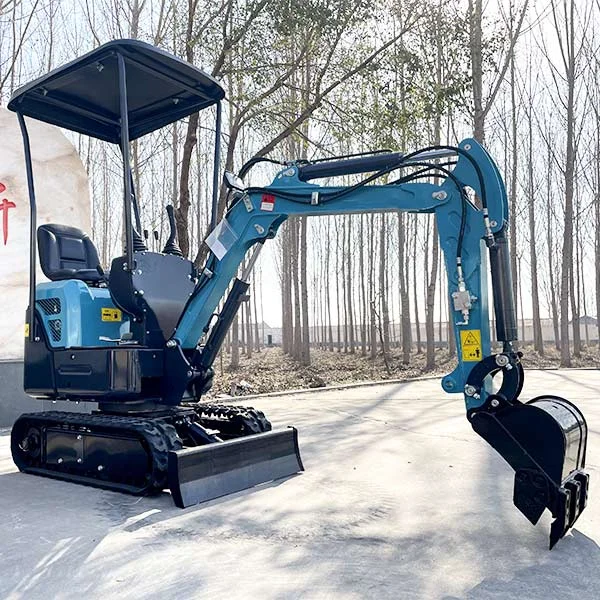
What is a Mini Excavator?
A mini excavator, also known as a compact excavator, is a versatile machine commonly used in construction, landscaping, and agricultural projects. These machines are characterized by their small size and powerful capabilities, making them ideal for tasks in confined spaces.
- Size: Typically weigh between 1 to 10 tons.
- Functionality: Equipped with a boom, dipper, and bucket for digging and lifting.
- Versatility: Can be used with various attachments like augers, breakers, and grapples.
Key Benefits of Using a Mini Excavator
Versatility
Mini excavators are compatible with a wide range of attachments, allowing them to perform various tasks such as digging, trenching, grading, and demolition. This versatility makes them suitable for multiple industries and applications.
- Attachments: Buckets, augers, hammers, grapples, etc.
- Applications: Construction, landscaping, agriculture, utility work.
Maneuverability
The compact size of mini excavators allows them to operate in tight spaces and navigate around obstacles with ease. This maneuverability is particularly beneficial for urban construction sites and residential projects.
- Compact Design: Fits into confined spaces.
- Ease of Navigation: Maneuvers around obstacles.
Efficiency
Mini excavators are designed to be highly efficient, offering excellent fuel economy and powerful performance. Their efficiency helps reduce operating costs and increases overall productivity.
- Fuel Economy: Lower fuel consumption.
- Performance: Powerful capabilities for small-scale tasks.
Key Features to Consider
Engine Power
The engine power of a mini excavator determines its performance and capability to handle various tasks. When choosing the best mini excavator, consider the engine power relative to the type of work you intend to perform.
- Horsepower (HP): Typically ranges from 10 to 50 HP.
- Consideration: Match the engine power to your project requirements.
Operating Weight
The operating weight of a mini excavator affects its stability and ability to handle different attachments. Heavier machines generally offer more stability, while lighter models are easier to transport.
- Weight Range: 1 to 10 tons.
- Stability vs. Transportability: Balance based on project needs.
Digging Depth
The digging depth capability of a mini excavator is crucial for tasks involving trenching or deep excavations. Ensure the machine you choose has an adequate digging depth for your specific projects.
- Depth Range: Typically 5 to 20 feet.
- Project Requirements: Match digging depth to project specifications.
Attachments and Compatibility
The ability to use various attachments enhances the functionality of a mini excavator. Check the compatibility of attachments and the ease of changing them to ensure versatility.
- Common Attachments: Buckets, augers, breakers, grapples.
- Quick Attach Systems: Facilitates easy attachment changes.
Cab Comfort and Controls
Operator comfort and ease of use are essential for maximizing productivity. Look for mini excavators with ergonomic controls, comfortable seating, and good visibility.
- Ergonomics: Comfortable seat, intuitive controls.
- Visibility: Clear view of the work area.
Table: Comparison of Key Features
| Feature | Description | Considerations |
|---|---|---|
| Engine Power | Determines performance and capability | Match HP to project requirements |
| Operating Weight | Affects stability and transportability | Balance based on project needs |
| Digging Depth | Crucial for trenching and deep excavations | Ensure adequate depth for specific projects |
| Attachments | Enhances functionality | Check compatibility and ease of changing attachments |
| Cab Comfort and Controls | Maximizes operator productivity | Look for ergonomic design and good visibility |
Comparing Different Models
Top Mini Excavator Brands
Several reputable brands manufacture high-quality mini excavators. Each brand offers unique features and benefits, so it’s essential to compare them to find the best fit for your project.
- Caterpillar: Known for durability and advanced technology.
- Bobcat: Offers excellent maneuverability and versatility.
- Komatsu: Renowned for fuel efficiency and powerful performance.
- John Deere: Known for reliability and operator comfort.
Model Comparison
Qilu QL-25ECO
- Engine Power: 22.1 HP
- Operating Weight: 5,511 lbs
- Digging Depth: 7.8 ft
- Notable Features: Advanced hydraulic system, comfortable cab.
Bobcat E35
- Engine Power: 33.5 HP
- Operating Weight: 7,659 lbs
- Digging Depth: 10.2 ft
- Notable Features: Zero tail swing, versatile attachment compatibility.
Komatsu PC30MR-5
- Engine Power: 24.4 HP
- Operating Weight: 6,614 lbs
- Digging Depth: 9.6 ft
- Notable Features: Fuel-efficient engine, compact design.
John Deere 35G
- Engine Power: 23.3 HP
- Operating Weight: 7,760 lbs
- Digging Depth: 10.0 ft
- Notable Features: Spacious cab, easy maintenance.
Table: Comparison of Popular Models
| Brand | Model | Engine Power (HP) | Operating Weight (lbs) | Digging Depth (ft) | Notable Features |
|---|---|---|---|---|---|
| Qilu | QL-25ECO | 22.1 | 5,511 | 7.8 | Advanced hydraulic system, comfortable cab |
| Bobcat | E35 | 33.5 | 7,659 | 10.2 | Zero tail swing, versatile attachments |
| Komatsu | PC30MR-5 | 24.4 | 6,614 | 9.6 | Fuel-efficient engine, compact design |
| John Deere | 35G | 23.3 | 7,760 | 10.0 | Spacious cab, easy maintenance |
Tips for Choosing the Best Mini Excavator
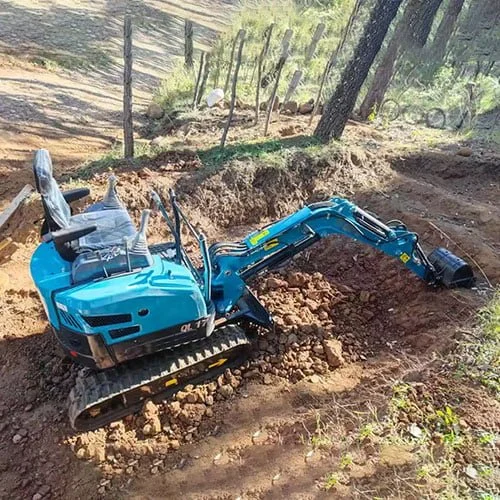
Assess Your Project Needs
Evaluate the specific requirements of your project, including the type of work, site conditions, and duration. This assessment will help you determine the essential features and capabilities needed in a mini excavator.
- Type of Work: Digging, lifting, grading, etc.
- Site Conditions: Space constraints, soil type, terrain.
- Project Duration: Short-term vs. long-term needs.
Consider Total Cost of Ownership
When choosing the best mini excavator, consider not only the initial purchase price but also the total cost of ownership. This includes fuel consumption, maintenance costs, and potential resale value.
- Initial Price: Budget constraints.
- Operating Costs: Fuel efficiency, maintenance requirements.
- Resale Value: Potential future return on investment.
Test Drive and Operator Feedback
If possible, test drive different models to get a feel for their performance, comfort, and ease of use. Additionally, gather feedback from operators who have experience with various mini excavators to gain insights into their pros and cons.
- Performance: Assess handling and functionality.
- Comfort: Evaluate operator comfort and controls.
- Feedback: Learn from the experiences of other operators.
Evaluate After-Sales Support
Choose a manufacturer or dealer that offers robust after-sales support, including warranty, servicing, and availability of spare parts. Good after-sales support ensures that your mini excavator remains operational and efficient.
- Warranty: Coverage and duration.
- Servicing: Availability of maintenance and repair services.
- Spare Parts: Easy access to replacement parts.
Conclusion
Selecting the best mini excavator for your project involves careful consideration of various factors, including engine power, operating weight, digging depth, attachment compatibility, and operator comfort. By comparing different models and brands, assessing your project needs, and considering the total cost of ownership, you can make an informed decision that enhances your productivity and efficiency. Investing in a high-quality mini excavator will provide long-term benefits, making it a valuable asset for your construction, landscaping, or agricultural projects.
FAQ
What factors should I consider when choosing the best mini excavator?
When choosing the best mini excavator, consider factors such as engine power, operating weight, digging depth, attachment compatibility, and operator comfort. These factors will help ensure the mini excavator meets your specific project needs.
How do I determine the best mini excavator for tight spaces?
The best mini excavator for tight spaces should have a compact design and excellent maneuverability. Look for models with features like zero tail swing, which allows the excavator to operate efficiently in confined areas.
What are the advantages of using the best mini excavator on a construction site?
Using the best mini excavator on a construction site offers several advantages, including versatility, efficiency, and ease of transportation. The compact size and powerful capabilities make mini excavators ideal for a variety of tasks, from digging and trenching to lifting and grading.
How does engine power affect the performance of the best mini excavator?
Engine power is a critical factor in determining the performance of the best mini excavator. Higher horsepower provides greater capability to handle demanding tasks, while lower horsepower may be sufficient for lighter work. Choose the engine power based on the specific requirements of your project.
What are the maintenance requirements for the best mini excavator?
Maintaining the best mini excavator involves regular inspections, lubrication, and servicing according to the manufacturer’s recommendations. Routine maintenance ensures the excavator remains in optimal working condition and prolongs its lifespan.
Can the best mini excavator handle multiple attachments?
Yes, the best mini excavator is designed to handle multiple attachments, enhancing its versatility. Common attachments include buckets, augers, breakers, and grapples. Ensure the mini excavator you choose is compatible with the attachments you need for your projects.
What is the average lifespan of the best mini excavator?
The average lifespan of the best mini excavator depends on usage, maintenance, and operating conditions. With proper care and regular maintenance, a mini excavator can last between 8,000 to 12,000 hours or more.
How do I choose the best mini excavator for my budget?
To choose the best mini excavator for your budget, compare different models based on their features, performance, and total cost of ownership. Consider factors such as fuel efficiency, maintenance costs, and potential resale value to make an informed decision.
What safety features should the best mini excavator have?
The best mini excavator should have essential safety features such as ROPS (Roll-Over Protective Structure), seat belts, safety locks, and excellent visibility from the cab. These features help ensure the safety of the operator and those working around the excavator.
Is it better to rent or buy the best mini excavator for short-term projects?
For short-term projects, renting the best mini excavator may be more economical. However, if you have ongoing or long-term projects, purchasing the mini excavator can be more cost-effective in the long run. Consider your project duration and frequency of use when making this decision.





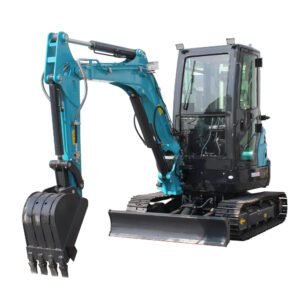
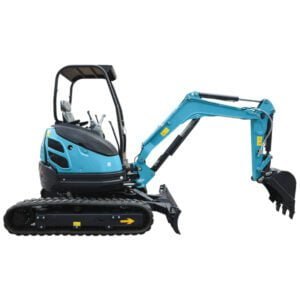
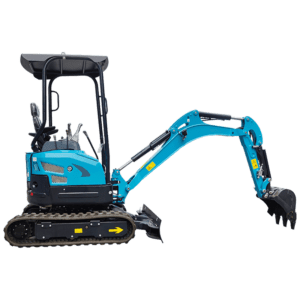

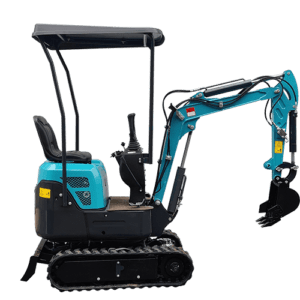

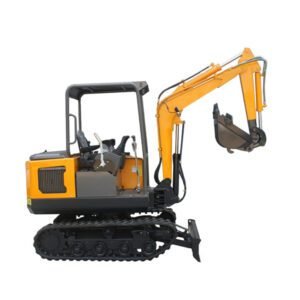

-1.png)